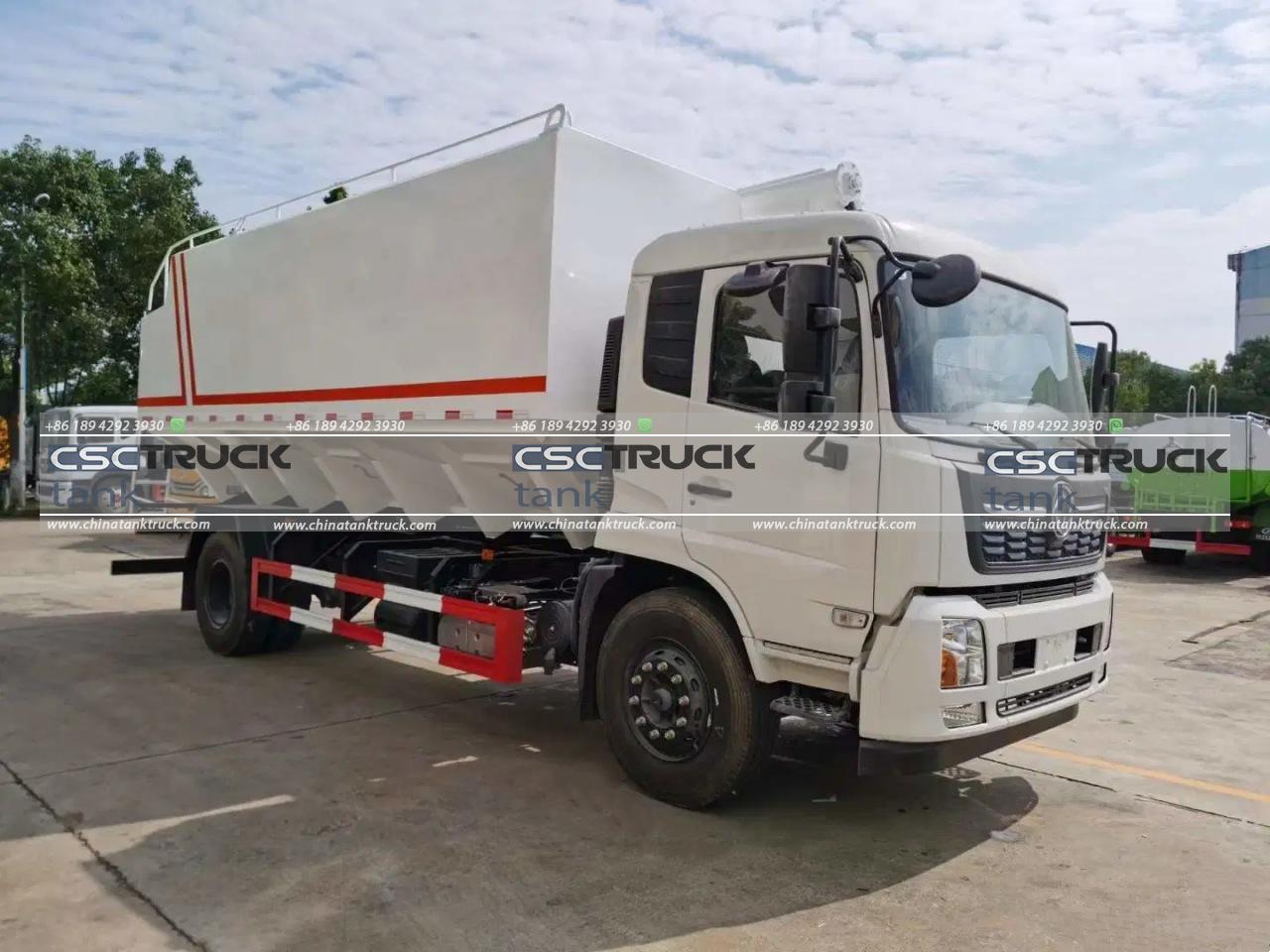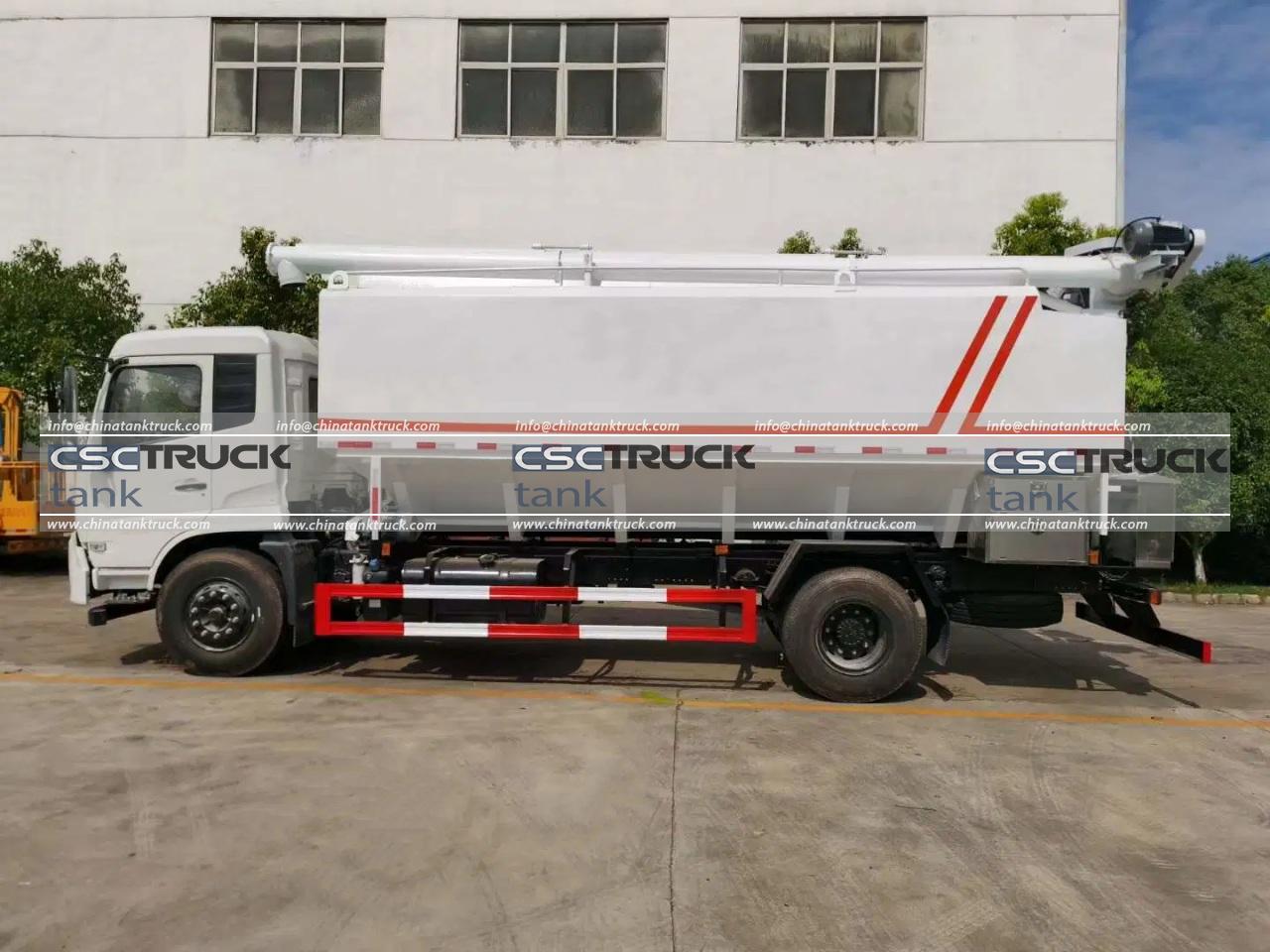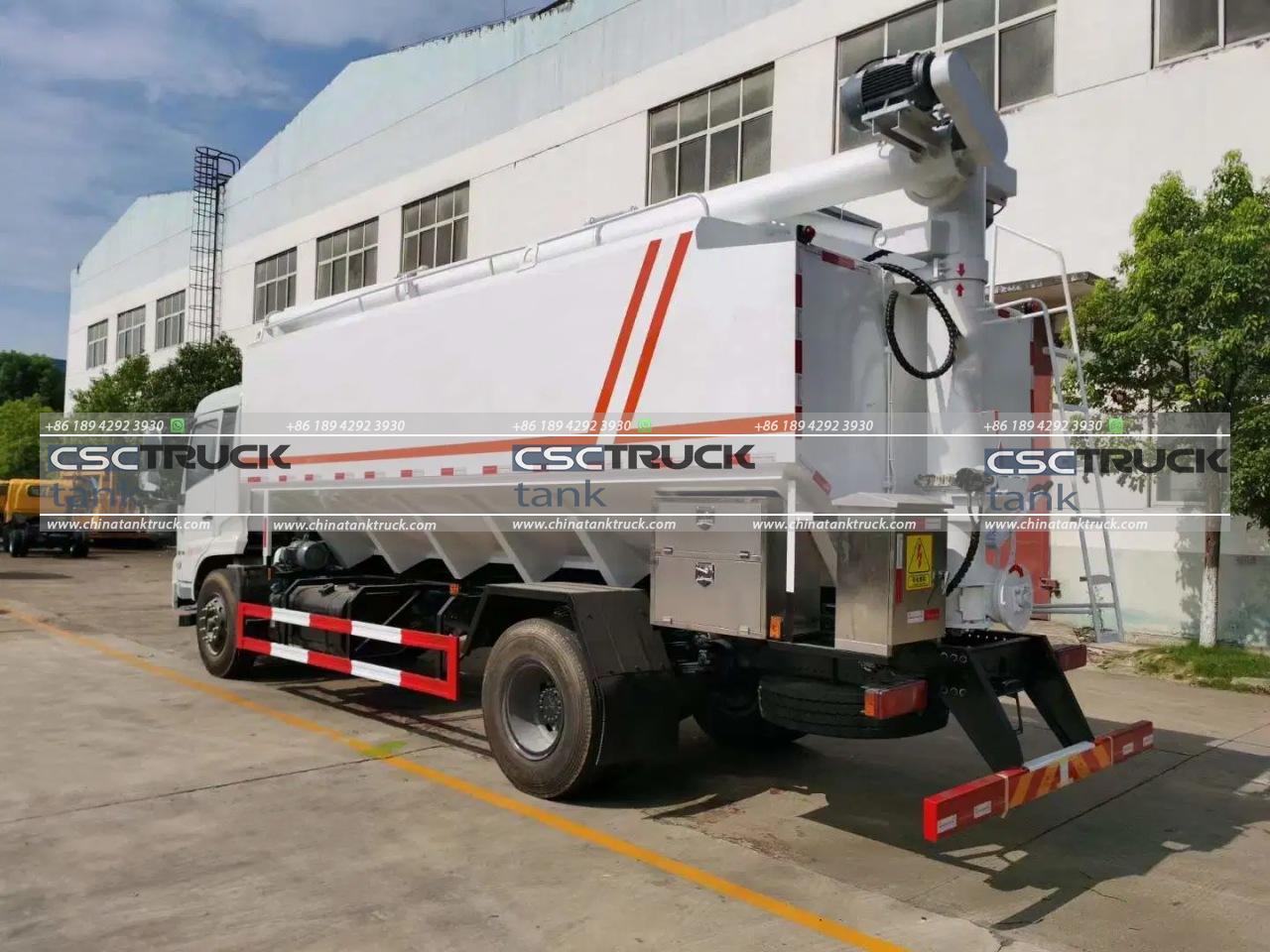What Are Pneumatic Tankers Used For?
Pneumatic tankers, dry bulk tankers, or bulk pneumatic trailers, are specialized vehicles that transport powdered or granular materials. These tankers are built to handle non-liquid goods that need to be transported efficiently and safely across long distances. The primary feature distinguishing pneumatic tankers from other vehicles is how they unload cargo: they use compressed air to push out the material, hence the term “pneumatic.”
The design and operation of pneumatic tankers make them ideal for transporting a wide range of products across various industries, including construction, agriculture, food production, and more. In this article, we’ll dive deeper into the uses, mechanics, and applications of pneumatic tankers.
How Do Pneumatic Tankers Work?
The core function of a pneumatic tanker revolves around its ability to transport dry bulk materials and unload them using air pressure. Here’s how the system generally works:
1. Loading the Material: The materials are loaded into the tanker either by gravity or by mechanical means, depending on the product and the infrastructure available at the loading site. The material is stored inside the tanker’s compartments or bins, which are typically made of aluminum or stainless steel to prevent contamination and ensure durability.
2. Sealed Environment: Once the materials are loaded, the tanker is sealed to ensure no contamination or exposure to outside elements. This airtight design is crucial for maintaining product quality, particularly for sensitive materials like foodstuffs or chemicals.
3. Unloading with Compressed Air: To unload the material, air is pumped into the tanker, pressurizing the interior. This air pressure forces the material out of the tank and into a designated storage facility or silo, usually through hoses or pipes. The system is designed to deliver the materials without manual intervention, which makes it highly efficient, particularly for large-scale industrial applications.
4. Filtration and Ventilation: Pneumatic tankers are equipped with filters to ensure that the air used in the unloading process does not introduce contaminants. Additionally, ventilation systems ensure that pressure levels are safe and controlled, preventing accidents or malfunctions.

Key Industries and Applications for Pneumatic Tankers
Pneumatic tankers are versatile and play an integral role in several industries. Here are some of the most common applications:
1. Construction Industry
One of the most prominent uses of pneumatic tankers is in the construction industry. They are commonly used to transport materials such as:
– Cement: Dry bulk tankers are often utilized to transport large quantities of cement to construction sites. Cement is essential for making concrete, which is the backbone of most construction projects.
– Fly Ash: This byproduct of coal combustion is used in concrete production. Pneumatic tankers ensure that fly ash can be transported and delivered in large quantities without contamination.
– Sand and Lime: These materials are frequently used in the construction of roads, bridges, and buildings. Pneumatic tankers help ensure these materials are delivered in the right quantities and conditions, preventing delays in construction projects.
2. Agriculture and Farming
In agriculture, pneumatic tankers are essential for the bulk transportation of several types of feedstock and fertilizers. Key uses include:
– Animal Feed: Pneumatic tankers are used to transport bulk animal feed, such as grains, soy, and other feed mixes, to farms and storage facilities. This method of transportation ensures that large volumes can be delivered efficiently without spoilage or contamination.
– Fertilizers: Many types of granular fertilizers, such as ammonium nitrate or phosphate, are transported using pneumatic tankers. These tankers ensure that fertilizers arrive in good condition, ready to be used in large-scale farming operations.
3. Food and Beverage Industry
The food industry requires stringent safety and hygiene standards, which pneumatic tankers can provide. They are commonly used to transport:
– Flour: Pneumatic tankers deliver large quantities of flour to bakeries, mills, and food manufacturers. The sealed environment prevents contamination and ensures the flour remains in prime condition during transport.
– Sugar and Salt: These bulk dry goods are essential ingredients in the food production process. Pneumatic tankers allow manufacturers to transport them in large quantities safely.
– Starch: In food processing, starch is widely used, and pneumatic tankers are often the chosen method for transporting this key ingredient.
4. Chemical Industry
Pneumatic tankers are also employed to move a variety of powdered or granular chemicals. These materials can be hazardous, so safe and secure transport is essential. Examples include:
– Plastic Pellets: These small beads or granules are used in the production of plastic products. Pneumatic tankers allow manufacturers to move plastic pellets in large volumes safely and efficiently.
– Limestone Powder: Used in many industrial processes, including water treatment and the production of glass, limestone powder is often transported via pneumatic tankers due to its fine nature.
5. Energy and Mining
The mining and energy sectors use pneumatic tankers to transport various bulk materials essential for extraction and energy production, such as:
– Frac Sand: In the oil and gas industry, frac sand is used during hydraulic fracturing (or fracking). Pneumatic tankers transport this specialized sand from quarries to drilling sites.
– Coal Dust: Pneumatic tankers can also be used to transport coal dust or fly ash produced in energy production.

Advantages of Using Pneumatic Tankers
There are several reasons why pneumatic tankers are preferred over other transportation methods for dry bulk goods. Some of the main advantages include:
1. Efficiency in Handling Bulk Goods
The ability to handle large volumes of material with minimal manual intervention is one of the greatest advantages of pneumatic tankers. This makes them highly suitable for industries that require the transport of bulk goods in a time-sensitive manner.
2. Contamination Prevention
The sealed, airtight design of pneumatic tankers ensures that sensitive materials like food products or chemicals are protected from outside contamination. This feature is crucial in industries with strict hygiene or safety requirements.
3. Safe Transportation of Hazardous Materials
Many industries that use pneumatic tankers deal with materials that can be hazardous if improperly handled. Pneumatic tankers’ pressurized system reduces the risk of spills or accidental exposure to hazardous substances.
4. Versatility
Pneumatic tankers can transport a wide variety of materials, from fine powders like flour and cement to granular products like fertilizers and plastic pellets. This versatility makes them a valuable asset across multiple industries.
5. Cost-Effective
Because pneumatic tankers can transport large quantities of material at once, they offer a cost-effective solution for industries that rely on bulk transport. Fewer trips are needed, reducing transportation costs over time.
Conclusion
Pneumatic tankers play a vital role in many industries, offering a reliable and efficient means of transporting bulk dry goods. Their ability to handle large volumes of material while ensuring safety, hygiene, and speed makes them indispensable in sectors such as construction, agriculture, food production, and chemicals. As industries continue to grow and demand faster, safer, and more efficient transportation methods, pneumatic tankers will remain at the forefront of bulk material transport solutions.


